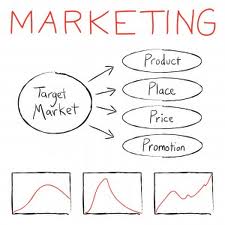I’m a firm believer in definitions. If you define precisely what you are talking about, then you have more chance of both setting realistic objectives and achieving your aims.

Nowhere is this more important than in marketing. Marketing often presents an image of chaotic flurry: too much money being spent in an apparently random pursuit of the unattainable. But true marketing is the calculated application of resources where they are most likely to yield effect.
So, we will start with an understanding of marketing theory and then proceed with a description of how this relates to the promotion of books.
Definitions of marketing are particularly problematic. Academics cannot agree, and many articles have been written about what marketing means. And perhaps because marketing is a relatively new discipline for academic study, it has been over-afflicted by ‘verbiage’ – the desire of those working in the subject to provide an appropriate (and some would say impenetrable) vocabulary to elevate the subject.
It seems to me that relatively new academic disciplines such as sociology, art history and marketing are much more prone to this than are more established subjects, such as history and English.
Equally unhelpful are the demotic – but far more memorable – terms associated with marketing via the media: ‘hoodwinked’, ‘conned’, ’suckered’, ‘landed with’, as well as the range of consumer interest programmes conveying the basic message that anyone selling anything is most likely trying to rob or con you. It is certainly true that many authors feel a genuine distaste for the commercial, and an even greater disdain for the associated language.
Even if you too have little liking for marketing and marketing-speak, try to remember the following:
1. Most people enjoy spending money. It’s quite common to see purchasing described as ‘retail therapy’.
2. Books are very reasonably priced.
For the would-be book-buyer, the financial entry point is low and the purchase could be the start of a long-term relationship. Even those who buy a book that they subsequently find they hate emerge with that most useful of social assets: an opinion.
Comments